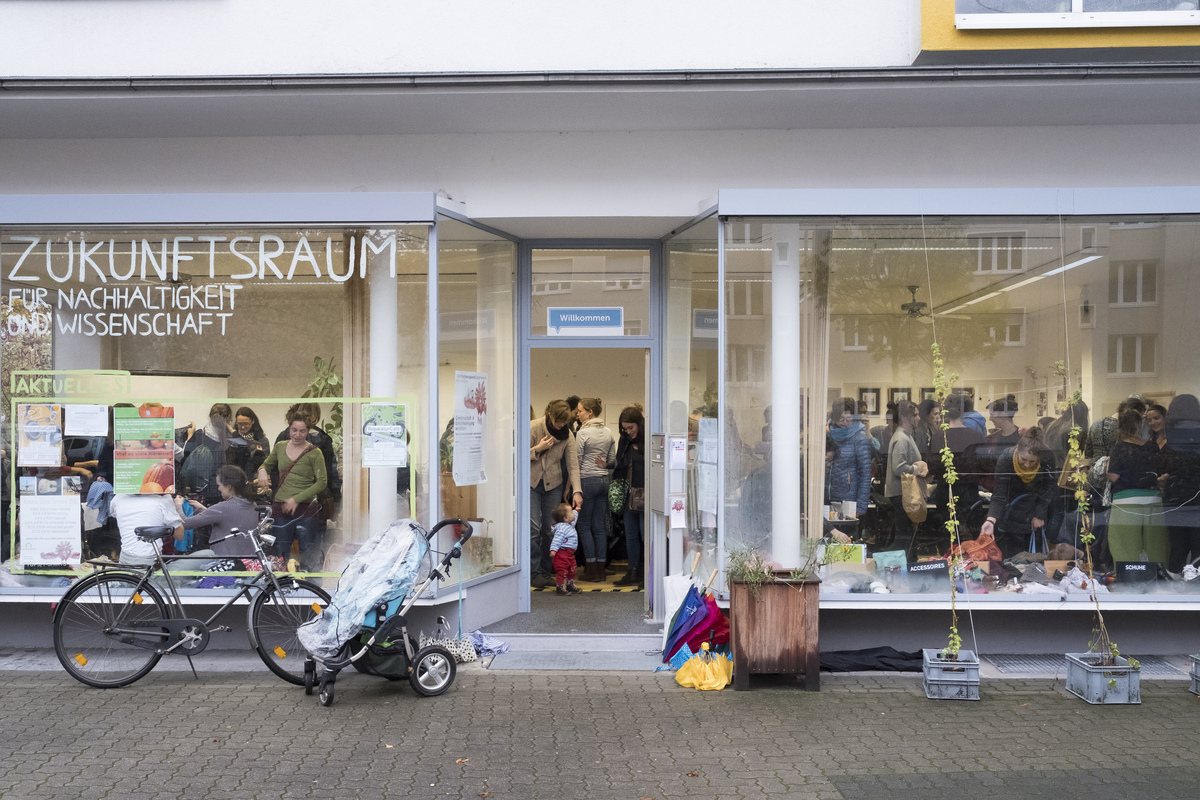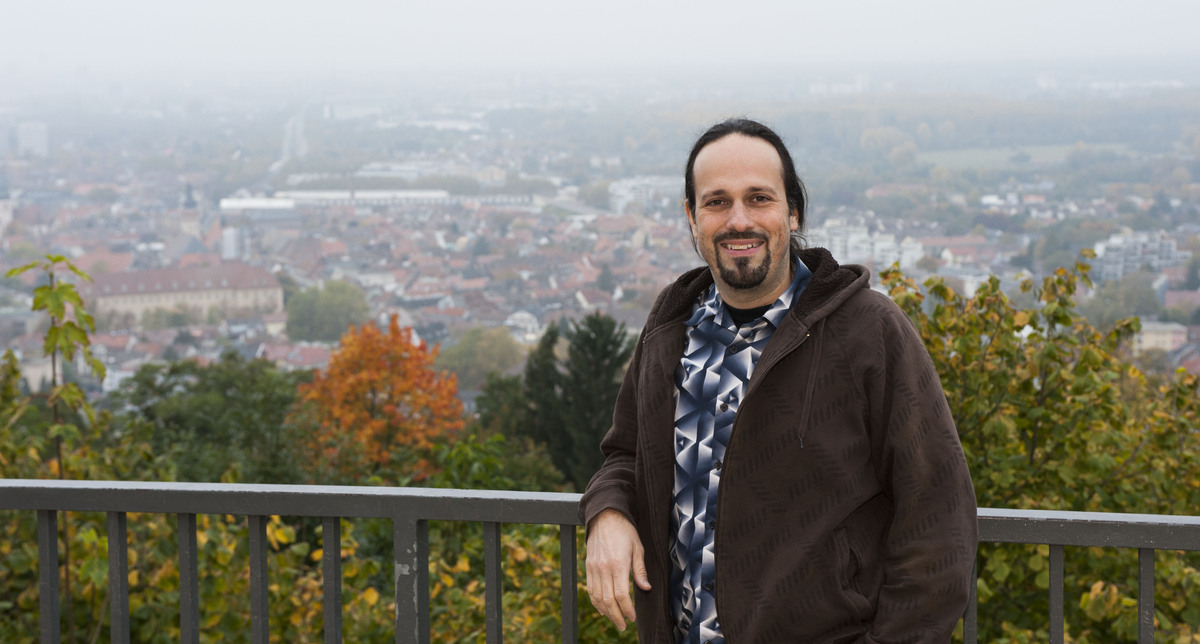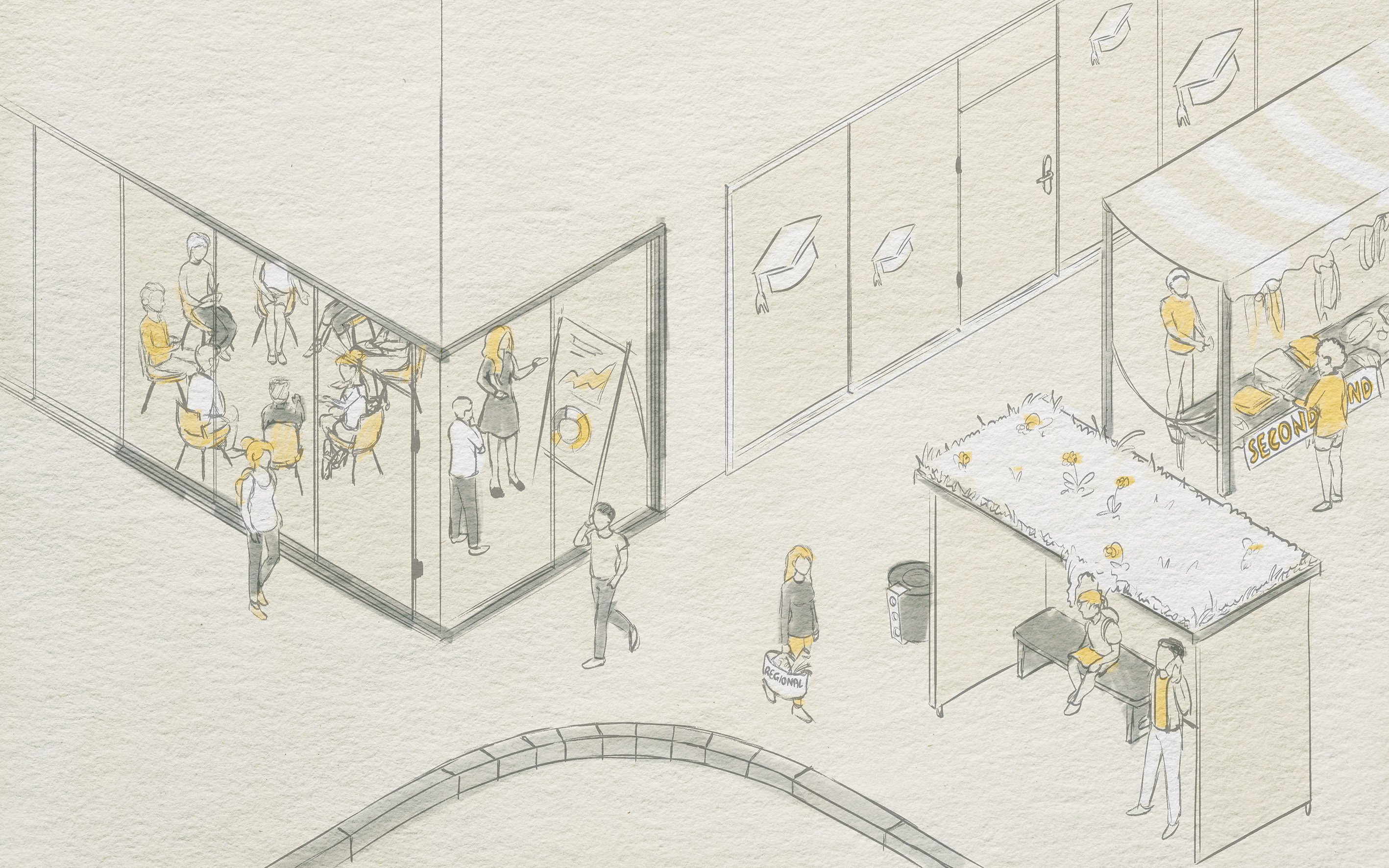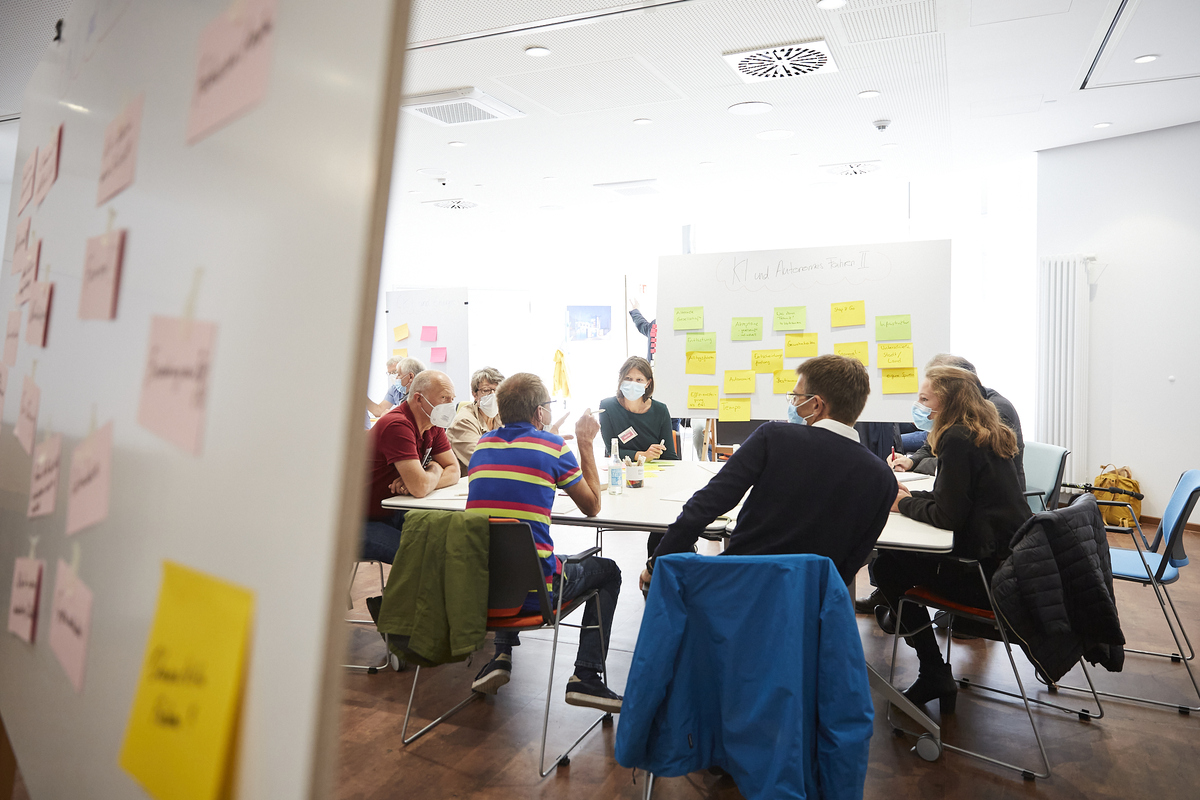From Knowledge to Action
In some situations, humans do not act logically: We are against industrial livestock farming, but we buy cheap meat. We are eager to care for the environment and for our health and still use the car instead of the bicycle, even for short distances. We have a wealth of knowledge, but often fail in putting theory into practice – real-world labs at Karlsruhe Institute of Technology (KIT) dedicate their research to this gap between knowledge and action and try to close it.
“We want to involve people in our research and development,” says KIT Vice-President for Transfer and International Affairs, Professor Thomas Hirth. “Society is asking what science does, why we do it, and how people benefit from our research. We have the responsibility to provide answers. At the same time, we need the perspective of citizens to ensure that the solutions we come up with can succeed.”
That is why the interaction with society is also an essential component of KIT's concept for the future, with which KIT was successful in the Excellence Strategy Competition of the Federation and the Federal States. Implementation is ongoing, as demonstrated by the Karlsruhe Transformation Center for Sustainability and Cultural Change” (KAT).
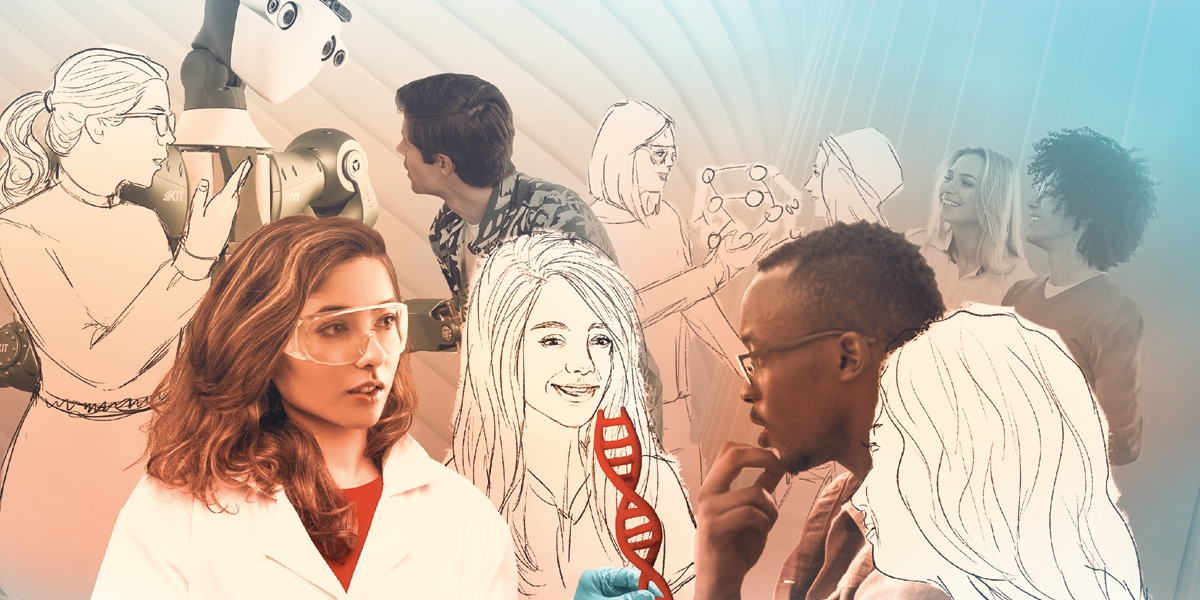
For details on the exchange between science and society as well as on the activities of KIT during the Science Year under the motto “Nachgefragt!” (Participate!), refer to the lookKIT research magazine.
Please click here to read lookKIT 2/22Knowledge and Action Are Linked by Experiment
“A real-world lab is a research institution in which science and society work hand in hand to develop and test sustainable solutions,” explains Dr. Oliver Parodi, head of KAT. Parodi and his interdisciplinary team are eager to find out how the step from knowledge to action can be taken. “Without looking at the people and their daily routine, we will not get any further here,” he says. This is why real-world labs go beyond the limits of traditional research by creating interfaces between science, economy, politics, and society, which mutually influence each other.
“Real-world labs are a form of cooperation in which all persons involved collaborate in a fair and equal manner, putting the focus on mutual learning in an experimental environment,” adds Professor Armin Grunwald, head of KIT’s Institute for Technology Assessment and Systems Analysis where KAT is hosted. “To solve important future issues today, a close collaboration between science and society is necessary.”
“Knowledge and action are linked by experiment,” says Oliver Parodi. This is why real-world labs are becoming increasingly important. For example, enterprises and universities conduct tests on self-driving cars or delivery drones, new ideas for telemedicine services or for public administration. At the same time, real-world labs play a major role in achieving more sustainability. They provide an environment for testing promising climate-friendly and environmentally compatible technologies and products, behavioral patterns, and business models. “To change the world, you need protected, real-world spaces for devising and trying things out,” as the researcher puts it.
Exploring and Shaping the Change
“Science and technology are necessary, but they alone will not be able to save us,” Parodi explains. He is convinced that the conversion to a future-proof society and a sustainable economic system is rather a task for the society as a whole – everybody has to assume responsibility for future generations and is called upon to take action. Moreover, change simply will not work if science, economy, or politics just dictate how people have to live. “We must search for, fight for, and try out sustainable solutions together.”
To support this conversion, KIT founded the Karlsruhe Transformation Center for Sustainability and Cultural Change in February 2022. “The researchers undergo transformation processes themselves and participate in them. In this way, they gain insight that cannot be generated just by observation from outside,” states Armin Grunwald. “All this is not only about knowledge, but about reshaping the society, and researchers are part of the whole process.” According to Grunwald, the goal is to build bridges together in order to overcome societal borders, individual interests, and traditional, outdated structures. “With KAT, we are creating an institution of change, taking topics such as climate protection, energy turnaround, and a culture of sustainability to a practical level,” adds Parodi.
District Future – Urban Lab
Since, 2012, the team of the “District Future” real-world lab explores jointly with Karlsruhe citizens how a sustainable city can be designed in harmony with the environment. Science and society collaborate to determine, try out, and explore how a culture of sustainability can form and be lived an urban district – taking our contemporary world, the environment, and posterity into account. This project of KIT has been implemented in the Karlsruhe Oststadt district, and everybody can join in: citizens, associations, companies, schools, and action groups.
The scientific team of the “District Future” project coordinates and moderates the sustainability work in the district and accompanies it from the research point of view, considering all aspects of urban life: areas such as economy and consumption, professional life, education, or nutrition are looked upon as a whole and addressed in an integrative manner. The “District Future – Urban Lab” project is hosted by KAT.
Karlsruhe Real-World Lab for Sustainable Climate Protection (KARLA)
The KARLA Karlsruhe real-world lab anchors climate protection more firmly in society and explores selected climate protection measures in Karlsruhe. This is a joint project of KIT, the city of Karlsruhe, the University of Karlsruhe, and a number of other partners. Five topics were selected for the transformation experiments: climate-friendly business travel, sustainable climate protection in the building sector, climate protection professionals, climate-friendly canteens as well as mobility and quality of life relying less on automobiles.
“For us, the most important criteria were relevance for climate protection, feasibility in Karlsruhe, fitness for the real-world lab, and synergy potentials for the parties involved,” explains Oliver Parodi, heads of the project. KARLA is embedded in the “District Future – Urban Lab” real-world lab. The Baden-Württemberg Ministry of Science, Research, and the Arts is funding this real-world lab with EUR 1.1 million.
Center for Digital Accessibility and Assistive Technologies Real-World Lab
The Center for Digital Accessibility and Assistive Technologies real-world lab explores new approaches for shaping society in way to allow barrier-free participation of handicapped persons. The focus of this endeavor is on architecture, man-machine interaction, digital accessibility, and assistive technologies. Since barriers not only affect handicapped persons, the development of new solutions brings benefits society as a whole.
A central role falls upon the Center for Digital Accessibility and Assistive Technologies (ACCESS@KIT) that has been supporting blind and partially sighted people and prospective students for many years with regard to study programs at KIT, and that is exploring solutions to break down digital barriers. Two newly set-up professorships covering man-machine interaction and accessibility as well as architecture and intelligent living, will intensify the real-world lab activities.
Moreover, a test area called “Barrierefreier Campus” (barrier-free campus) will be established as part of the real-world lab and in cooperation with the Computer Vision for Human Computer-Interaction research group. It focuses on the development of assistance systems to support barrier-free mobility and orientation on the KIT campus, which will be tested involving visually impaired students and staff.
Baden-Württemberg Test Area for Autonomous Driving (TAF BW)
Autonomous driving is the future of sustainable and innovative mobility. This includes new ways of thinking, i.e. combining individual and public transport. The Baden-Württemberg Test Area for Autonomous Driving (TAF BW) allows companies and research institutions to try out future-oriented technologies and services related to connected and automated driving in everyday traffic, such as automated driving of cars, busses, or commercial vehicles. The test area is operational since May 2018.
As a member of the consortium featuring stakeholders from the cities of Karlsruhe, Bruchsal, and Heilbronn as well as several research institutions, KIT was involved in the planning and set-up of the test area, designed a mobile control station to monitor the use of connected and automated vehicles, and provides office spaces and workshop facilities for the test area users. In addition, the KIT researchers work out the basics for the integration of autonomous driving in traffic flow and transport demand models and provide facilities for technical tests. The Federal state of Baden-Württemberg is funding the TAF BW with EUR 5.5 million.
Real-World Lab for Automated Bus Services in Urban and Rural Public Transport (RaBus)
The RaBus real-world lab focuses on testing a local public transport service with electrified and automated vehicles: more precisely, the aim is having self-driving buses participate in the regular road traffic in the cities of Mannheim and Friedrichshafen. Researchers of KIT’s Institute for Transport Studies (IFV) are responsible for the accompanying research on demand, acceptance, and impact.
The development, implementation, and testing of an economic and reliable driving operation with fully automated vehicles has a high relevance to the future of urban public transport. This technology would enable the public transport operators to offer an attractive, affordable, and environmentally friendly 24/7 regional door-to-door bus shuttle service. The Baden-Württemberg Ministry for Transport is funding this project with EUR 14 million.
Robotic Artificial Intelligence Real-World Lab
Humanoid robots enable us humans to experience artificial intelligence (AI) in a physical form. The purpose of the “Robotic Artificial Intelligence” real-world lab at KIT, coordinated by Professor Tamim Asfour from KIT’s Institute for Anthropomatics and Robotics (IAR), is to make AI tangible in a variety of experiments and different real environments, including childcare centers, schools, museums, libraries, and hospitals. It is aimed at achieving a broad awareness of AI technologies and gaining new knowledge that will foster the development of robotic AI systems. The experiments allow a bidirectional exchange on an equal level with the people as well as knowledge transfer between research and users.
In this way, the real-world lab contributes to a society-oriented research on technologies that are needed by people and benefit society. Examples for application scenarios are assisting hospital staff with their work, supporting children in learning foreign languages in “KinderUniversum”, the childcare center of KIT, or read-out sessions in public libraries. When the real-world lab was launched, it involved a number of schoolchildren, various science camps for pupils, and experiments on man-robot interaction in the Karlsruhe Center for Arts and Media (ZKM). The Baden-Württemberg Ministry of Science, Research, and the Arts is funding this real-world lab with EUR 800,000.
Real-Time Decisions in Case Knowledge in the Impact Forecast of Extreme Events is Incomplete (ERNIE)
Heat, rainstorms, floods – extreme weather events caused by the climate change are becoming increasingly frequent. The planned real-world lab called ERNIE, to be launched at KIT in 2023, focuses on forecasts and analyses of the impact of short-term extreme events as well as long-term climate changes and their interactions with society, economy, and the environment in urban areas. The way society deals with risks and uncertainties is of particular importance here. The real-world lab will cooperate closely with KIT’s interdisciplinary Center for Disaster Management and Risk Reduction Technology (CEDIM).
It is planned to use the insights related to potential impacts of various extreme events for taking preventive action, mitigating possible damages, facilitating the reconstruction after a disaster, thereby making the affected regions more resilient. The real-world lab KIT professorship tandem associated with ERNIE is dedicated to two main topics: “Impact-based forecasting” and “Decision-making under high risk and high uncertainty.”
Common Venture for Climate Protection
KAT assists individuals, municipalities, and organizations, who have set out for a more sustainable future, in their transformation processes and actively accompanies them in their daily work. Besides various universities, companies, and NGOs, municipalities such as Freiburg, Karlsruhe, and Braunschweig have already made use of the KAT advisory and support services on their way to more sustainability. The researchers of KAT build bridges between different moral concepts and patterns of thinking. They establish trust, extend networks, and develop common visions.
An example is the “Klimaschutz gemeinsam wagen!” (Common venture for climate protection) project. KAT aims at creating a culture of sustainability with the citizens of the Karlsruhe Oststadt district. Climate-friendly alternatives and new everyday routines for nutrition, mobility, and consumption are worked out, tested, and explored. One goal is to reduce CO2 emissions, the other one is to create a common awareness for climate and environmental protection. This also includes the support of the local gastronomy, staff and student restaurants on their way to achieving a more sustainable operation and food offer.
“Our so-called self-experimentation offer was received especially well,” says Sarah Meyer-Soylu, head of project. Interested persons could test how their lives would change if they abstained from eating meat or using animal products in general, stopped using their cars, bought regional or seasonal products, consciously avoided waste or saved electricity. 280 citizens of Karlsruhe took part in the self-experimentation, 130 of them as well as 175 students from the Ludwigsburg teacher education college documented their experiments.
While the active self-experimentation phase is over now, people who feel like taking part can still do so. In addition, all individuals wanting more climate-friendly mobility in the future can still hire cargo bicycles. “The bicycles will still be available to the project until its term in September,” explains Meyer-Soylu. “Afterwards, we will make them available for hiring to all citizens of Karlsruhe.” Overall, the project and the associated activities achieved proven savings of 330 tons of CO₂ equivalent.
“With KAT, we have created an effective and visible driving force for a future-oriented development,” resumes Oliver Parodi. “We are showing how life and economy can become sustainable in the society as a whole: by means of dialogue, interaction, knowledge and joint learning, participation and moderation as well as mediation in cases of conflict. Here, real-world labs provide fertile ground and exciting opportunities to actually make the transition from knowledge to action.”
Martin Grolms, Timo Schreck
July 13, 2022

